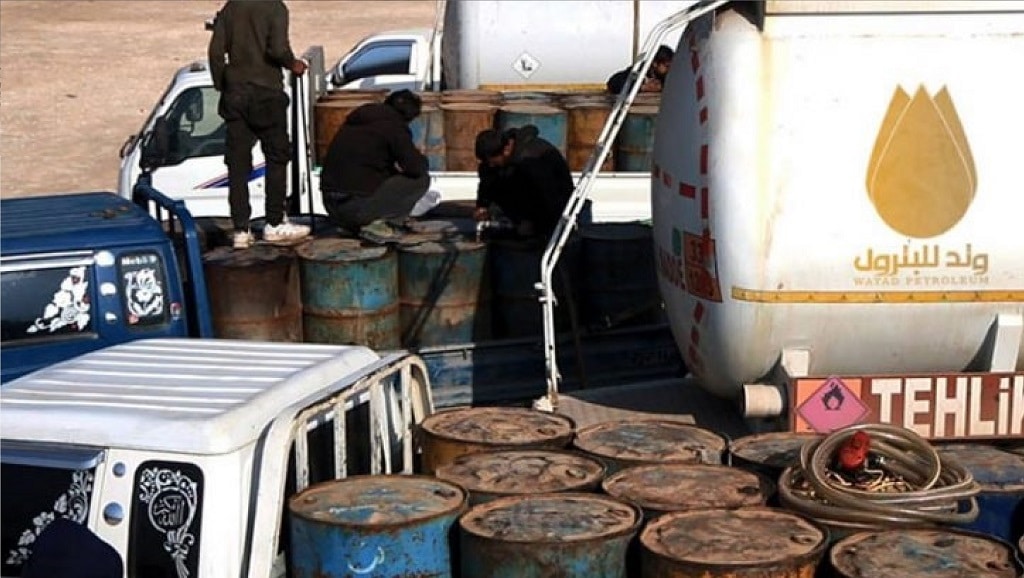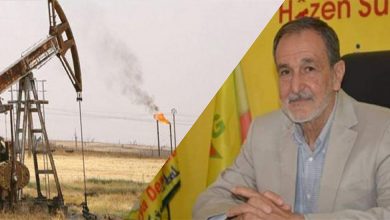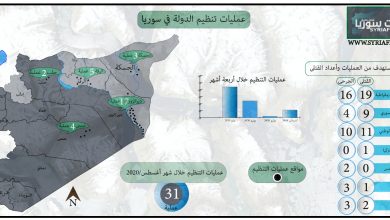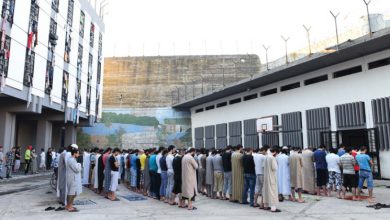Flourish in Tahrir Al-Sham’s Fuel Business amid Complete Monopoly

By Ahmed Ibrahim
Idlib (Syria Files)- The ‘economic wing’ of Hayat Tahrir al-Sham group has remarkably benefited from fuel trade, taking advantage of the powerful military grip on northwestern Idlib province.
Fuel is the life’s nerve of the last opposition enclave that hosts 3.5 million people, such a need pushed the former al-Qaeda branch in 2018 to monopolize the oil market and to construct it in a way suits it’s profitable interest by establishing ‘WATAD’ fuel company in partnership with key traders in Idlib and northern Aleppo countryside.
WATAD has begun fuel business by importing petroleum derivatives from Ukraine, through intermediary Turkish companies, including a company called “mt”, a well-informed source told Syria Files.
The company is ‘importing’ diesel, gasoline and gas by its own fuel trucks through the Bab al-Hawa crossing border with Turkey, with the reduction of fuel entry fees from $5 to $3 for each ton.
KAF, another fuel company, opened its first station in the town of Sarmada, north of Idlib months ago and in a promotional step, KAF has distributed quantities of heating fuel to a group of displaced people, according to its social media accounts.
Yunis Al-Karim, an economic and political analyst, told Syria Files that KAF is no more than a fellow fuel company to WATAD since the HTS has plans to ease the process of financial control by giving the sense of real civil competitive atmosphere.
Such a move seeks to lessen the overwhelming military grip on the fuel market in Idlib province, he added.
The fuel prices in the KAF’s petrol station are at a few Turkish piasters lower than the prices in the stations belonging to the WATAD and in most areas controlled by Tahrir al-Sham.
The price of imported diesel at the “KAF” company is 4.78 Turkish liras, and gasoline 4.75 TL, locally processed diesel 3.93 TL. Prices in WATAD: diesel prices 4.80 TL, gasoline 4.76, and locally processed diesel 3.95 TL.
WATAD still has an advantage for being the only source of domestic gas since it controls two gas plants owned by the government’s Sadcob Fuel Company. The first one is located at the eastern entrance of Idlib city, and the second is located in the Bab Al-Hawa town.
According to the daily fuel price leaflet, the price of a gas cylinder, weighing 24 kg, is 73.50 TL. (Prices are on a daily change.)
According to al-Karim, the pricing process is also related to the exchange rate of the Turkish Lira against the U.S. dollar after the Syrian pound was removed from the equation of fuel prices, so the pursuit is not only to get hold of the market, but to make a regular profit through multiple fuel companies owned by one source.
WATAD or KAF and even Al-Shahba fuel company, which is currently in the process of being established, all are run by Mustafa Qadid, known as Abu Abdulrahman al-Zarba, one of the most prominent figures in the economic wing of the HTS.
Qadid manages the fuel sector in Idlib, under a civil mask represented by the Salvation Government, local governing body responsible for issuing licenses for these companies, according to the expert.
Hence proved, Tahrir al-Sham seeks to relieve pressure on transferring funds through establishing companies specialized in the fuel trade, according to al-Karim.
It’s a sneaky plan to overcome the international sanctions, as well as to ease the burden on intermediaries and companies outside Syria, through distributing the imports to more than one company, such a strategy exceeds the powers of the Salvation Government, he added.
The HTS, also, seeks to absorb the residents’ outrage in Idlib amid the soaring hike in prices and the monopoly of the fuel trade, by saying that there is a competition and more than one company trying to offer the best prices.
Syria Files analyst says the fuel is well available, but it is not commensurate with the purchasing power of the citizens.
Whatever the means, the outcome is the same for the citizen in Idlib, an increase in prices and monopoly for the fuel market, which does not preclude the existence of more than one company, with its subordination to one party and under its protection, amid full control over the crossing points with the Turkish-held areas northwest of Aleppo.





